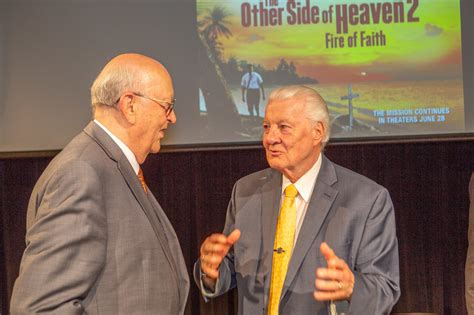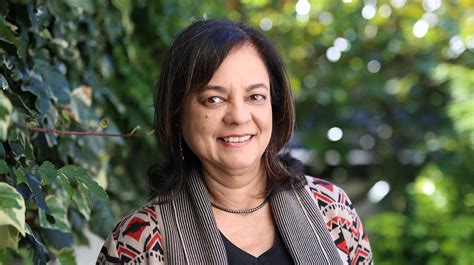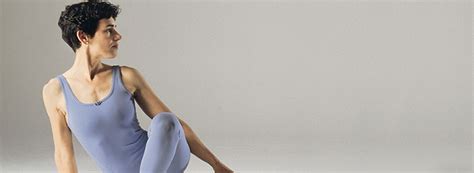A Quote by Karen Armstrong
We are most creative and sense other possibilities that transcend our ordinary experience when we leave ourselves behind.
Related Quotes
Theologians in all the great faiths have devised all kinds of myths to show that this type of kenosis, of self-emptying, is found in the life of God itself. They do not do this because it sounds edifying, but because this is the way that human nature seems to work. We are most creative and sense other possibilities that transcend our ordinary experience when we leave ourselves behind.
We can leave a place behind, or we can stay in that place and leave our selfishness (often expressed in feeling sorry for ourselves) behind. If we leave a place and take our selfishness with us, the cycle of problems starts all over again no matter where we go. But if we leave our selfishness behind, no matter where we are, things start to improve.
When we follow the reversal of normal experience, we find ourselves in an unusual, nearly mad experience. Being in an almost mad experience is not something we should fear: only in such experience are we jarred out of our common sense opinions and beliefs. It opens our minds to other ideas and thought. It makes us think.
We fear our highest possibilities. We are generally afraid to become that which we can glimpse in our most perfect moments, under conditions of great courage. We enjoy and even thrill to godlike possibilities we see in ourselves in such peak moments. And yet we simultaneously shiver with weakness, awe, and fear before these very same possibilities.
We leave something of ourselves behind when we leave a place. We stay there even though we go away and there are things in us we can find again only by going back there. We travel to ourselves when we go to a place. We have covered a stretch of our life no matter how brief it may have been but by traveling to ourselves we must confront our own loneliness. And isn’t it so that everything we do is done out of fear of our loneliness? Isn’t that why we renounce all the things we will regret at the end of our life?
Behind every door on every ordinary street, in every hut in every ordinary village in this middling planet of a trivial star, such riches are to be found. The strange journeys we undertake on our earthly pilgrimage, the joy and suffering we taste or confer, the chance events that leave us together or apart, what a complex trace they leave: so personal as to be almost incommunicable, so fugitive as to be almost irrecoverable.
One of the characteristics of North American culture is that you can always start again. You can always move forward, cross a border of a state or a city or a county, and move West, most of the time West. You leave behind guilt, past traditions, memories. You are as if born again, in the sense of the snake: You leave your skin behind and you begin again. For most people in the world, that is totally impossible.
At that elusive moment when we transcend our ordinary performance and feel in harmony with something else-whether it's a glorious sunset, inspiring music or another human being-our studies have shown that what we are really coming in sync with is ourselves. Not only do we feel more relaxed and at peace, but this entrained state increases our ability to perform well and offers numerous health benefits.
I think that that phrase from the Bible is one of the best definitions of "creative." When you are creative, you are in the world in the sense that you see what it is and know its problems and possibilities. But you are not of the world in the sense that you are not caught up in external things and are coming from your inner resources to create approaches that are yours alone and have potential to change the world.





































